Australia is a conflicted sporting nation.
We love the underdog tag but hate the inferiority it suggests. We embrace a fair-go ethos and then crucify our teams, coaches and administrators when they don’t win.
We wear our robust physicality as a badge of honour yet recoil at any insinuation of tactical ineptitude. We’re not the sporting nation we think we are.
For every Ash Barty there’s a Nick Kyrgios, Bernard Tomic and Lleyton Hewitt dummy spit.
For every Ricky Ponting there’s a Shane Warne scandal, David Warner altercation and Steve Smith tamper-gate.
For every Sam Kerr there’s a Kevin Muscat breaking someone’s leg, Craig Johnstone surfing for England and Tim Cahill blocking someone on Twitter.
And for every David Pocock there’s, well, Super Rugby.
Australian sport is a lot of things, but it’s neither mature nor sophisticated. So why do we think that when it comes to one of the sports we’re least successful at we can progress under Australian coaches?
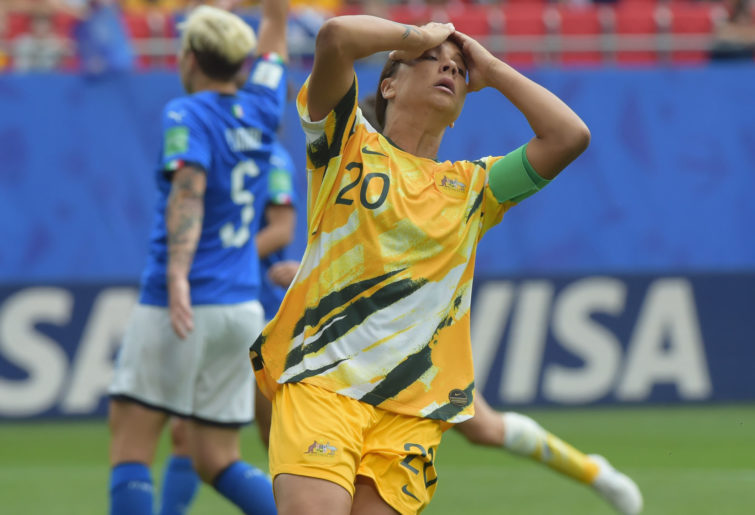
(Pier Marco Tacca/Getty Images)
The modern Australian football landscape has been laid on the unifying effect of the 2006 World Cup.
It energised the A-League (Melbourne Victory averaged 31,000 people per match that year), brought a new generation of fans to Australian football and rebranded the Socceroos as the epitome of Australia’s underdog infatuation, transforming them into the nation’s (statistically proven) most loved national team.
There was a golden generation, a wealthy benefactor, a grand new vision. But it couldn’t have happened without a gruff, world-weary Dutchman gathering all the pieces and finishing the puzzle.
The modern Socceroos were built on the back of foreign coaches: Terry Venables proved we could match the world’s best, then Guus Hiddink taught us how.
Though many may shudder at the prospect of another Hesterine De Reus, the Matildas too were built on foreign sweat and blood.
The seven-year spell of Tom Sermanni in the late 2000s firmly evolved the Australian women’s national team from the days of posing nude for calendars to the lofty heights they enjoy today.
So why have we suffered through a plethora of average foreign and domestic coaches since?
The issue isn’t whether the coach is Australian, Argentinian or Afghani. The issue is whether the coach is good enough, and Australian coaches just aren’t good enough. Not yet.
What’s truly lacking is elite foreign experience.
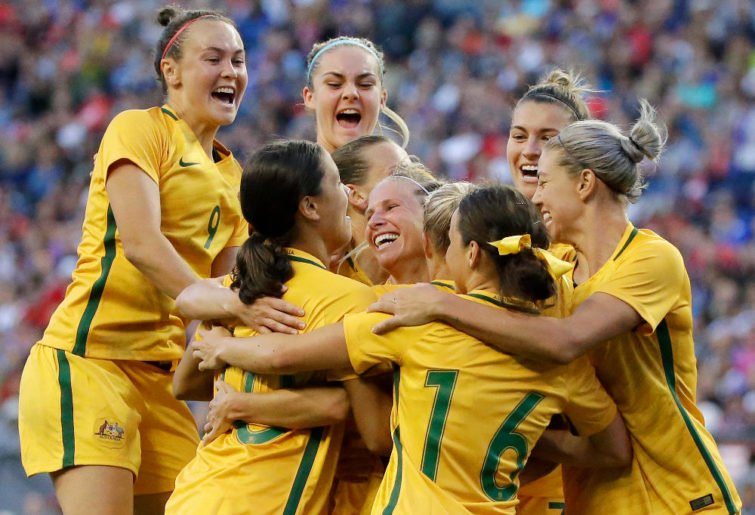
(AP Photo/Ted S. Warren)
Ange Postecoglou is arguably the greatest coach Australia’s produced. He had the capacity to transform the Socceroos from a defensive, counter-attacking outfit into an attacking, possession-based team. But he couldn’t enable them to compete on a global stage.
He suffered at the double-edged sword of Australian coaching. He lacked global understanding and he was too emotionally involved. The weight of home-grown expectation eventually proved too great.
Make no mistake, the Socceroos coaching role is the toughest gig in Australian sport. There is no wider variety of egos, styles and backgrounds to manage and no harder competitions to succeed at.
Soon, however, it will be coaching the Matildas.
Unlike the Socceroos, the Matildas have had a running start. Their 2-1 loss against Italy and stunning rebuke of Milicic’s tactics says it all.
“I’m so upset. More for the style in which we played the second half … this high line is absolutely ridiculous,” Canberra United coach Heather Garriock said post-match.
“If you think as a coach you can come in and change your philosophy and change the style within five matches … we have just been crucified, not once but twice.”
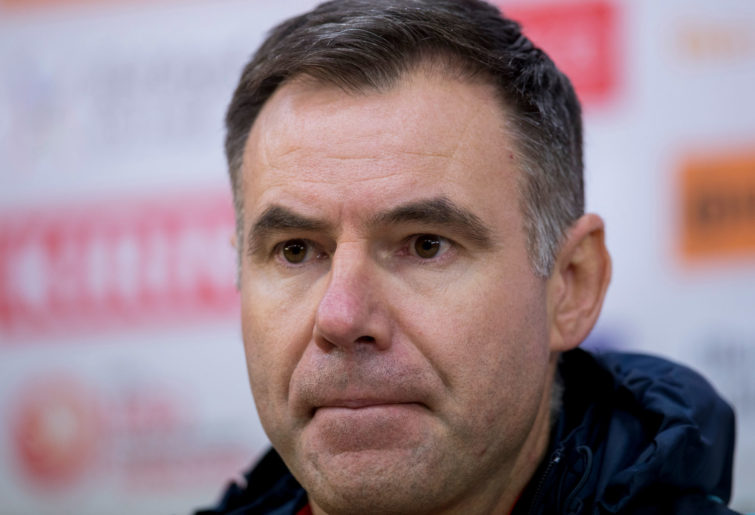
Ante Milicic (Power Sport Images/Getty Images)
A four-time world champion in the men’s game, the Italian women’s national team are playing their first World Cup since 1990, the victims of years of negligence and underfunding on the part of the Italian football confederation.
But the days of European superpowers ignoring women’s football are over. The Italians said pre-match that while the Matildas were athletic, they’re tactically inferior. They were right.
The day 60,000 fans packed the Wanda Metropolitano to watch Atletico Madrid play Barcelona in the Liga Feminina was a warning shot to female football outside Europe. The sleeping giants have awoken.
Unlike the Socceroos, the Australian public have already tasted success in women’s football and adjusted their expectations to suit. Our athleticism and the relative wealth of opportunities for Australian sportswomen had ranked us among the world’s best.
Soon a few foreign journalists had put us among the favourites and suddenly every Australian news organisation was claiming we were going to win the World Cup.
But after the players are esteemed and the pressure is heaped, all that remains is the coach.
It can no longer be excused that our players aren’t good enough. It can’t be governance crises either – look at the discrimination suffered by other women’s sides in this competition. It has to be the tactics.
As a country we can’t even decide what our sporting identity is. We’re far too conflicted about what sport means to handle the responsibility of coaching a winning football team.
This isn’t to mention the specific lack of professional opportunities for Australian coaches or that our coaches all grew up in a semi-professional system.
After the World Cup, the question will likely be why FFA thought it was appropriate to appoint Ante Milicic – a coach with no experience of the women’s game, a purported reluctance to take the position and a short, unsuccessful record in international football – as coach of the Matildas.
It seems an extraordinary opportunity wasted, rendering FFA’s claims that Alen Stajcic’s sacking was for “purely football reasons” laughable.
At best this women’s World Cup could be the biggest tournament in Australian football history. At worst it’s our greatest chance since 2006 of implanting ourselves on the world stage, a chance to right the wrongs of the past 13 years more broadly.
But if we’re destined to suffer yet again at the lack of foresight from those governing Australian football, at least we can persecute exactly where we keep going wrong.
Pim Verbeek and Holger Osieck were meagre appointments in the wake of Hiddink – an Asian Cup semi-final and a Gold Cup their only notable international achievements – tainting the reputation of foreign coaches Down Under.
This led Australia to appoint Postecoglou and Graham Arnold before we, or they, were ready.
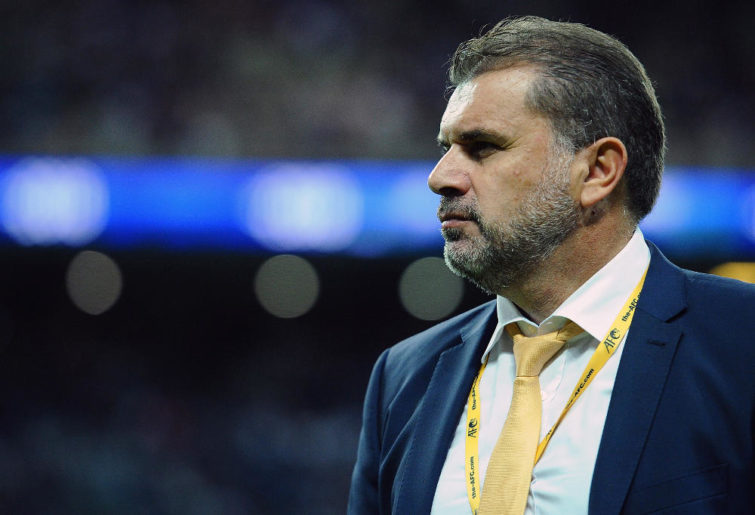
Former Socceroos coach Ange Postecoglou (AAP Image/Matt Roberts)
Now the female game has also passed the point where sticking in a successful W-League coach or a Socceroos assistant is good enough to compete at the highest level. At its heart it’s not just Euro-snobbery, it’s ensuring Australian coaches receive the same foreign education as Joe Montemurro before we hand over the keys.
While the rest of the world rapidly evolves around us, Australia has reached our national coaching zenith. Unless we appoint elite foreign coaches, we won’t just stagnate, we’ll decline.
Crying poor is no excuse: coaches simply aren’t that expensive. Zinedine Zidane and Diego Simeone only earnt $4 million more than Keisuke Honda last season.
National team coaches cost even less.
Jorge Sampaoli, Gareth Southgate and Carlos Queiroz were paid only fractionally more at the 2018 World Cup than we paid Bert van Marwijk for a uselessly short stint, while Belgium’s Roberto Martinez was paid less.
FFA, through Fox Sports’s marquee fund, shelled out millions on securing Keisuke Honda for a single A-League club but have never seemed to consider the cumulative value that a marquee coach could have.
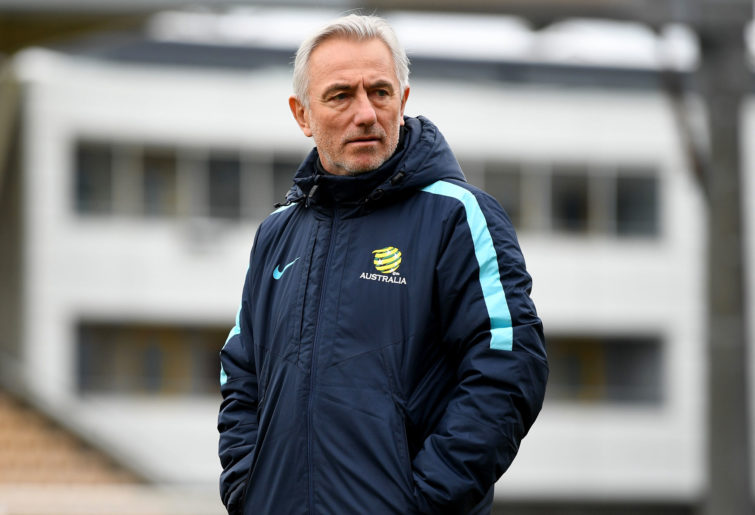
Former Socceroos coach Bert van Marwijk (Michael Regan/Getty Images)
Your average football fan isn’t just disconnected from the A-League, they’re disconnected from Australian football.
They’re not going to watch or attend the A-League en masse because a former AC Milan midfielder is playing for Victory, but they will watch the A-League if the Socceroos are performing well on the world stage.
They’ll want to experience Australian football and know where the next generation is going to come from.
People won’t start watching the W-League if you bring in foreign stars. But they will start watching if the Matildas play exciting, attractive football at the World Cup. They’ll be hooked on the patriotic pride and excitement.
Australian football has a peculiar advantage in this area because of that conflicting ideal at the heart of our sporting mythology – the love of the Aussie battler.
Australia’s cricket and rugby sides are expected to win, which means if the Wallabies perform strongly in their World Cup, it’s unlikely to spark wider public interest. Average Australian rugby attendances actually dropped after the Wallabies made the World Cup final in 2015 – it doesn’t excite mainstream Australia that we beat up Tonga and Fiji.
Football is a different story. It’s us against the world, and by virtue of being traditionally unsuccessful the Socceroos and Matildas can inspire people to love their sport in a way that no other national team can.
But coaching isn’t just an issue for our national teams.
The most successful expansion team in modern football history, MLS club Atlanta United, started life in a saturated sporting market in an area with no football history nor interest and without a single big-name marquee footballer.
Instead they focused on the coach, appointing former Argentina boss Gerardo Martino.
Brilliant attacking, flowing football soon followed. Atlanta were entertaining, consistent and immediately competitive. Best of all, rather than relying on short-lived and expensive foreign signings, they were able to build heroes out of home-grown players who didn’t depart after a single season.
A-League clubs suffer from a revolving door of meaningless marquees, their subsequent lack of identity rooted in an absence of purpose. It all comes down to coaches – they pick the teams, preach the philosophy, espouse the virtues and mould the talent.
Most importantly for Australia, they’re not just responsible for results but fore who our sporting role models are as people.


































































































